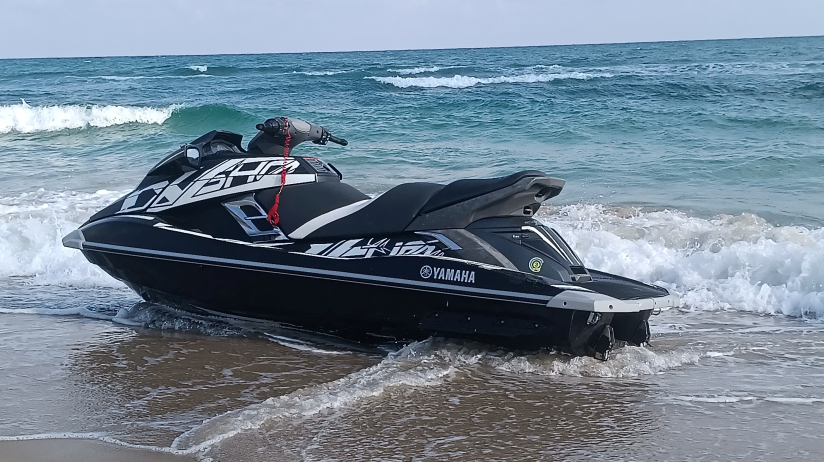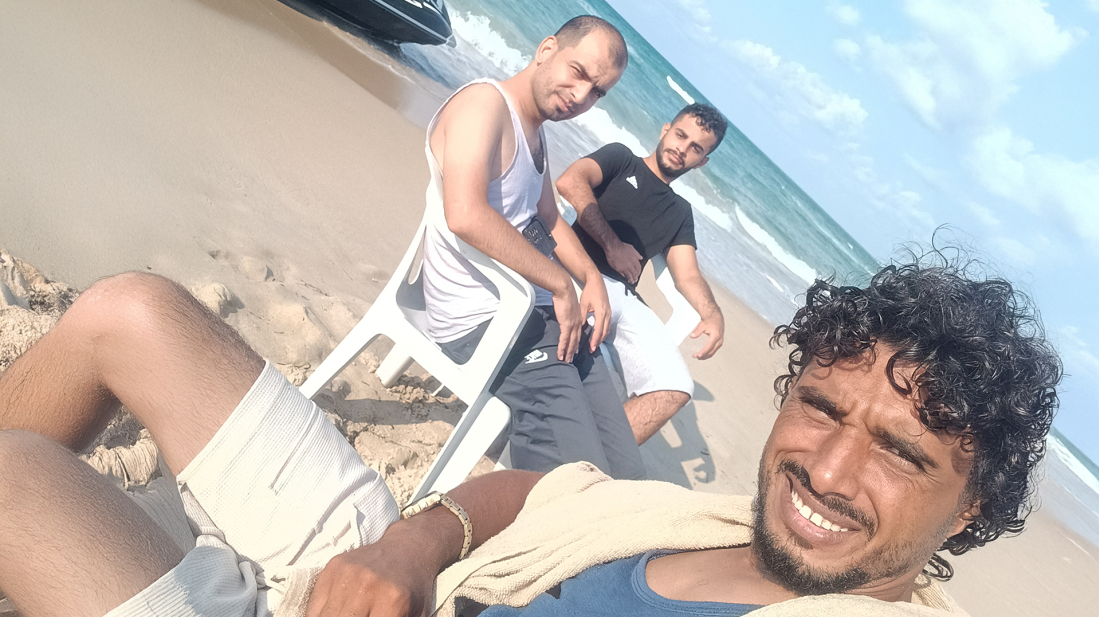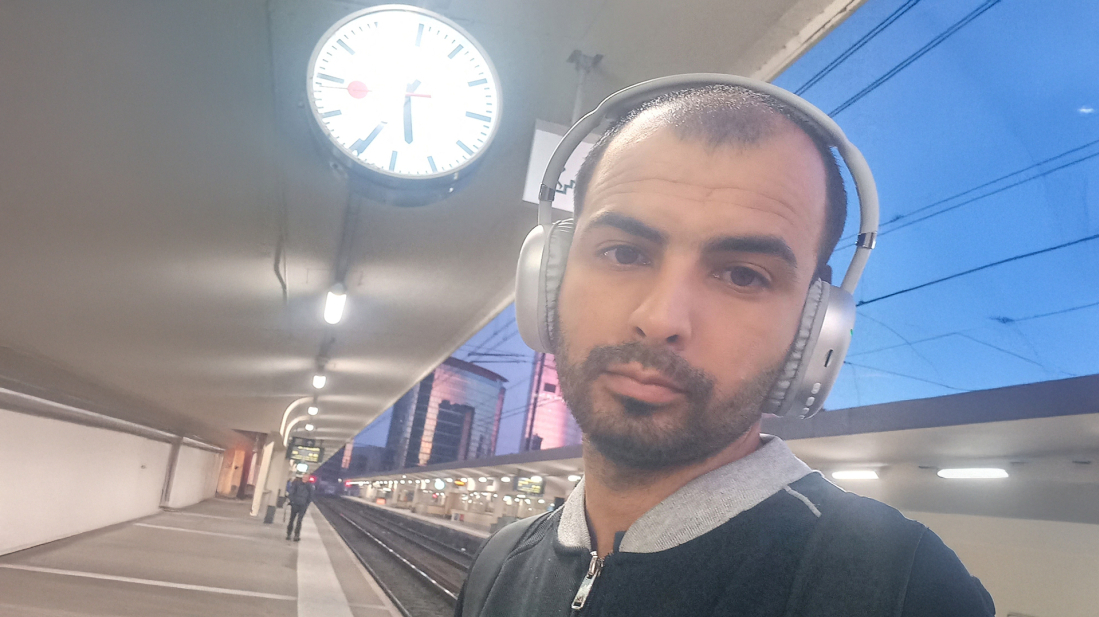António José Seguro wins Portugal presidential runoff against far right
Centre-left António José Seguro secured a landslide win in Portugal’s presidential runoff, defeating far-right rival Andre Ventura and becoming th...

Muhammad Abu Dakha, a 31-year-old Palestinian from Gaza, documented his odyssey to Europe in videos, photographs and audio recordings. He later shared the material with Reuters, which also interviewed him, his travelling companions, and relatives back in Gaza.
Fleeing the destruction caused by the nearly two-year Israel–Hamas conflict, which Gaza health officials say has killed more than 57,000 Palestinians, Abu Dakha crossed the Rafah border into Egypt in April 2024, paying $5,000.
To China and back
He initially travelled to China in the hope of securing asylum but returned to Egypt via Malaysia and Indonesia when that attempt failed. Reuters has seen his email exchanges with the United Nations Refugee Agency (UNHCR) in China from August and September 2024.
From there he went to Libya, a country where, according to human rights organisations and the UN, tens of thousands of migrants face routine abuse and exploitation by traffickers and rebel groups while seeking passage to Europe.
According to Italy’s interior ministry, more than 47,000 migrants have arrived by boat this year, largely from Libya and Tunisia. Abu Dakha, however, crossed under extraordinary circumstances.
“That’s when I started thinking of a new idea, the jet ski idea. At the beginning, I tried the jet ski that one of my relatives had, and I liked the idea. So I started planning for it. Within two months we got a jet ski, checked the fuel, and calculated the distance and thought of how we will carry the fuel,” he recalled.

After ten failed attempts with smugglers, he bought a second-hand Yamaha jet ski for about $5,000 via a Libyan online marketplace, investing a further $1,500 in equipment, including a GPS, satellite phone and life jackets.
With two fellow Palestinians, 27-year-old Diaa and 23-year-old Bassem, he set off on a 12-hour journey, pursued at one point by a Tunisian patrol boat, towing a dinghy laden with supplies.
The trio even used ChatGPT to estimate fuel needs but still ran out some 20 km from Lampedusa. “Then we went towards Lampedusa. And we started running low on fuel. Our fuel ran out between 15 and 20 km from Lampedusa, so we stayed there. Then I contacted my relative in Germany, who reached out to the coast guard… Less than an hour later, the Italian coast guard helped us, with all respect to them,” said Abu Dakha.
They were eventually rescued and taken to the Italian island on 18 August. A Romanian patrol boat participating in a Frontex mission carried out the rescue, with an EU border agency spokesperson describing the episode as “an unusual occurrence”.
“It was a very difficult journey, but we were adventurers. We had strong hope we would arrive, and God gave us strength,” added Bassem.
UNHCR Italy spokesperson Filippo Ungaro confirmed that the men’s arrival by jet ski from the Libyan port of al-Khoms, some 350 km away in a straight line, had been recorded by Italian authorities.
From Lampedusa to Germany
Abu Dakha contacted Reuters from a migrant reception centre in Lampedusa after staff informed him that local media had already reported his arrival. He then shared further evidence of his journey, though Reuters was unable to verify all details.
From Lampedusa, the three were ferried to Sicily and then placed on a bus bound for Genoa, in northern Italy, but slipped away before reaching their destination. The Italian interior ministry said it had no specific information on their movements.
Abu Dakha then flew from Genoa to Brussels, showing Reuters his boarding pass dated 23 August. From Belgium, he travelled by train to Germany, where a relative collected him in Osnabrück, Lower Saxony, and drove him to nearby Bramsche.

He has since applied for asylum and is awaiting a court hearing. With no job or income, he is living in a centre for asylum seekers. Germany’s Federal Office for Migration and Refugees declined to comment on his case, citing privacy laws.
Meanwhile, his family remains in a tent camp in Khan Younis, southern Gaza, after their home was destroyed.
“He had an internet café, and his life was comfortable financially. He had built everything up – and it all collapsed,” said his father, Intesar Khouder Abu Dakha.
“He never talked about the idea at all, and we never said he was going to Italy. Now he calls me and says, ‘Mom, this is what happened. Thank God, I arrived in Italy, and they welcomed me warmly.’… And I said, ‘Praise be to God in all circumstances,’” added his mother, Intesar Khouder Abu Dakha, her voice breaking.
Abu Dakha now hopes to secure the right to remain in Germany and eventually bring over his wife and two children, aged four and six, one of whom requires treatment for a neurological condition.
“That’s why I risked my life on a jet ski,” he explained. “Without my family, life has no meaning.”
U.S. President Donald Trump has criticised American freestyle skier Hunter Hess after the athlete said he felt conflicted about representing the United States at the Winter Olympics in Italy, sparking a public clash that highlights growing political tensions surrounding the Games.
Iran would retaliate by striking U.S. military bases across the Middle East if it comes under attack by American forces, Foreign Minister Abbas Araghchi said on Saturday (7 January), stressing that such action should not be seen as targeting the countries hosting those bases.
U.S. skiing great Lindsey Vonn underwent surgery in an Italian hospital on Sunday after her attempt to win Olympic downhill gold ended in a violent crash just seconds into the race at the Milano Cortina Winter Games.
A Japanese city near Mount Fuji has cancelled its annual cherry blossom festival, saying growing numbers of badly behaved tourists are disrupting daily life for residents.
Several avalanches struck northern Italy on Saturday, killing at least three people, as rescue officials warned the death toll could rise with unstable conditions persisting across the Alps.
Hong Kong’s most prominent media tycoon Jimmy Lai was sentenced on Monday (9 February) to a total of 20 years in prison on national security charges. The verdict covers two counts of conspiracy to collude with foreign forces and one count related to publishing seditious materials.
Russian overnight drone attacks killed at least three people in Ukraine’s east and south on Monday (9 February), with officials reporting casualties in the Kharkiv, Odesa and Dnipropetrovsk regions.
Czech Prime Minister Andrej Babis said on Sunday (8 February) he was in favour of banning the use of social media by children under 15 of age, as a growing number of European countries consider similar restrictions.
Start your day informed with AnewZ Morning Brief: here are the top news stories for the 9th of February, covering the latest developments you need to know.
A South Korean Army AH-1S Cobra attack helicopter crashed on Monday (9 Febuary) during a training flight in the northern county of Gapyeong, killing both crew members on board, the military said.
You can download the AnewZ application from Play Store and the App Store.

What is your opinion on this topic?
Leave the first comment